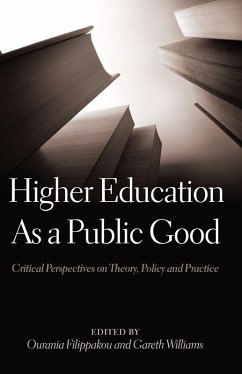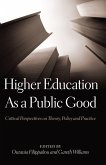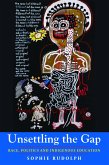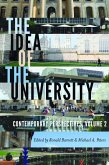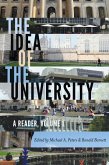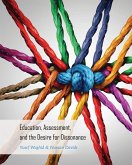Higher education is likely to involve the majority of people at some time in their lives in the twenty-first century. The main drivers of expansion in the previous century were a belief that widening access promotes social equity and the advance of knowledge as the main factor underpinning economic success for individuals and societies. However, universal higher education in rapidly changing economies raises many questions that have been inadequately treated by previous authors. This volume focuses on the question of whether it is appropriate and inevitable that higher education systems are becoming so large and so diverse that the only realistic way they can be analysed is as aggregates of market-like transactions. Most of the authors are not satisfied with this conclusion, but they recognise, from several disciplinary perspectives, that it is no longer possible to take it for granted that higher education is intrinsically a public good. Are there convincing alternatives?
Dieser Download kann aus rechtlichen Gründen nur mit Rechnungsadresse in A, D ausgeliefert werden.
«Perhaps never before has the need to argue the case for higher education to be regarded as a public good been more apparent. But the public good can be a contested concept. The great virtue of this book is that it describes itself as a 'conversation' about the public good and it brings together distinguished contributors who offer contrasting sets of views on the subject. This is a book for our times and should be read by anyone interested in the question what universities are for or why their function is not just to provide higher education as a marketable commodity.» (Michael Shattock, Visiting Professor, Centre for Higher Education Studies, Institute of Education; Author, 'Making Policy in British Higher Education 1945-2011')
«The extent to which higher education is a private or a public good goes to the heart of what it means to be a university. It is both a philosophical and very practical matter. The challenges in interpreting the responsibilities and opportunities afforded by the constantly shifting nature of the private-public dynamic is reflected in this excellent and thought-provoking collection of papers presented by a group of leading thinkers and policy analysts. The book provides important new insights into the way this key issue is understood in an age characterized by a fuzzying divide between 'private' and 'public' interest. 'Higher Education as a Public Good' will help to inform and revitalize debate about the purposes and multiple identities of higher education.» (Bruce Macfarlane, Professor of Higher Education, University of Southampton)
«The extent to which higher education is a private or a public good goes to the heart of what it means to be a university. It is both a philosophical and very practical matter. The challenges in interpreting the responsibilities and opportunities afforded by the constantly shifting nature of the private-public dynamic is reflected in this excellent and thought-provoking collection of papers presented by a group of leading thinkers and policy analysts. The book provides important new insights into the way this key issue is understood in an age characterized by a fuzzying divide between 'private' and 'public' interest. 'Higher Education as a Public Good' will help to inform and revitalize debate about the purposes and multiple identities of higher education.» (Bruce Macfarlane, Professor of Higher Education, University of Southampton)

